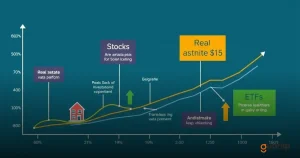Debt Consolidation is a go-to solution for those struggling with multiple payments. It simplifies finances by combining debts into one, often with a lower interest rate. But is it always a smart move?
It can make payments easier, but it’s not risk-free. Some people save money, while others end up paying more over time. Knowing the pros and cons is crucial.
Thinking about consolidating your debt? Let’s explore whether this strategy is the right fit for you.
What Is Debt Consolidation?
Debt consolidation involves merging multiple debts, such as credit card balances, personal loans, and other liabilities, into one single loan or payment. This is typically done through:
- Personal debt consolidation loans – A loan used to pay off multiple debts, leaving only one loan to manage.
- Balance transfer credit cards – Credit cards that offer low or 0% introductory interest rates for transferring existing balances.
- Home equity loans or lines of credit – Using home equity as collateral to consolidate debt at a lower interest rate.
- Debt management programs – Working with credit counseling agencies to negotiate better repayment terms with creditors.
The primary goal of debt consolidation is to secure a lower interest rate, streamline payments, and make it easier to eliminate debt over time. However, the effectiveness of this strategy depends on various factors, including interest rates, repayment terms, and financial discipline.
Advantages of Debt Consolidation
Opting for debt consolidation can offer several financial and psychological benefits, making it a viable solution for individuals struggling with multiple payments.
1. Lower Interest Rates
One of the main advantages of debt consolidation is the potential for lower interest rates. Many credit cards and short-term loans carry high-interest rates, sometimes exceeding 20%. By consolidating these debts into a single loan with a lower interest rate, borrowers can save money on interest payments and reduce the overall cost of their debt.
For example, if you have three credit cards with interest rates of 22%, 18%, and 20%, consolidating them into a personal loan with a 10% interest rate can significantly reduce your monthly interest expense.
2. Simplified Payments
Managing multiple debts can be overwhelming, especially when each has a different due date, interest rate, and minimum payment requirement. Debt consolidation eliminates this complexity by combining all debts into one monthly payment, reducing the likelihood of missed or late payments.
Instead of tracking five or six different payments each month, you only need to focus on a single loan, making financial planning much easier.
3. Improved Cash Flow and Budgeting
With lower interest rates and a single payment structure, individuals often experience improved cash flow. This makes it easier to create and stick to a budget, as there are fewer unpredictable financial obligations.
A fixed payment schedule also allows borrowers to plan ahead, ensuring they have enough funds to meet their obligations without constantly juggling multiple payments.
4. Potential Credit Score Improvement
If managed responsibly, debt consolidation can have a positive impact on credit scores. By paying off multiple credit cards or high-interest loans, borrowers can reduce their credit utilization ratio—one of the most significant factors in credit scoring.
Additionally, making timely payments on a consolidated loan can demonstrate financial responsibility, further boosting credit scores over time.
5. Reduced Financial Stress
Debt can be a major source of stress and anxiety, especially when juggling multiple payments with high interest rates. Debt consolidation provides a structured repayment plan, helping individuals regain control over their finances and reduce the emotional burden associated with debt.
Disadvantages of Debt Consolidation
While debt consolidation can be beneficial, it’s not the right solution for everyone. Here are some potential drawbacks to consider before consolidating your debts.
1. It May Not Reduce Overall Costs
Although debt consolidation can lower interest rates, it does not necessarily reduce the total cost of debt. Some loans extend the repayment period, meaning borrowers pay interest for a longer time, which can lead to higher overall costs.
For example, if you consolidate a five-year loan into a ten-year loan with a lower monthly payment, you might pay less per month but end up paying more in total interest.
2. Requires Financial Discipline
Debt consolidation does not eliminate debt—it simply restructures it. Without proper financial discipline, individuals may continue using credit cards and accumulating new debt, worsening their financial situation.
To make debt consolidation effective, it’s essential to change spending habits and avoid accumulating additional debt while repaying the consolidated loan.
3. Fees and Additional Costs
Some debt consolidation options come with fees, including:
- Origination fees – Some lenders charge fees for processing a new loan.
- Balance transfer fees – Credit cards may charge a percentage of the transferred balance.
- Prepayment penalties – Some loans impose penalties for paying off debt early.
These extra costs can sometimes offset the benefits of lower interest rates, so it’s crucial to read the fine print before committing to a debt consolidation plan.
4. Risk of Secured Debt
If you use a secured loan—such as a home equity loan—to consolidate debt, you risk losing your collateral if you fail to make payments. Unlike credit card debt, which is unsecured, secured loans are backed by assets such as a house or car, increasing the stakes of missing payments.
5. Not Everyone Qualifies for Low Interest Rates
The effectiveness of debt consolidation depends largely on the interest rate you receive. Lenders determine interest rates based on credit scores, income, and financial history. If you have poor credit, you may not qualify for a low-interest loan, making consolidation less beneficial.
In some cases, individuals with bad credit may end up with a higher interest rate than their current debts, defeating the purpose of consolidation.
When Is Debt Consolidation a Good Idea?
Debt consolidation can be a smart financial move if:
- You can secure a lower interest rate than your current debts.
- You have the financial discipline to avoid accumulating new debt.
- The new repayment terms align with your budget and financial goals.
- You want to simplify payments and improve financial management.
However, if the consolidation loan extends your repayment period significantly or results in higher overall costs, it may not be the best option.
Alternatives to Debt Consolidation
If debt consolidation isn’t a viable solution, consider these alternative strategies to manage your debt:
- Debt Snowball Method: Focus on paying off the smallest debts first, then move to larger ones to build momentum.
- Debt Avalanche Method: Prioritize paying off high-interest debts first to minimize total interest payments.
- Negotiating with Creditors: Many lenders are willing to negotiate lower interest rates or offer hardship programs.
- Credit Counseling Services: Professional financial advisors can help create a structured repayment plan.
- Bankruptcy (as a last resort): If debts are unmanageable, bankruptcy may be an option, though it has significant long-term consequences.
Conclusion
Debt consolidation is a powerful financial tool that can simplify debt management, lower interest rates, and improve cash flow. However, it’s not a one-size-fits-all solution and comes with potential risks, such as fees, extended repayment terms, and the need for financial discipline.
Before deciding on debt consolidation, it’s essential to assess your financial situation, explore alternative strategies, and ensure that this approach aligns with your long-term financial goals. If used wisely, it can be an effective way to regain control of your finances and work towards a debt-free future.





